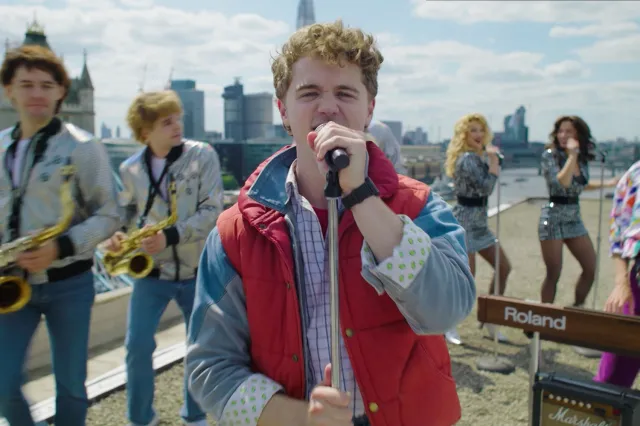The Comedy of Errors
Dominic Cooke’s debut production at the National laboriously rescues Shakespeare’s fleet and funny farce from its “Boys from Syracuse” tradition of Mediterranean mayhem: we are in a rough inner city more like the port of Amsterdam than the coast of Ephesus.
There is nothing much wrong with this, but having cast Lenny Henry as the visiting Antipholus – and he’s more than equal to the challenge, — Cooke and designer Bunny Christie throw so much noise and design at the show that the comedy of mistaken identity bends and buckles into one of not “who’s who” but “who cares who’s who?”
As a sequel to Richard Bean’s Goldoni, a sort of “Two Men, Two Guvnors,” it limps home a lame second. The long expository speech of the arrested merchant, Egeon (Joseph Mydell), is made longer by ship wreck palaver, a ponderous mimed narrative of the birth of the two sets of twins, sudden microphoning, overwhelming sound effects, and a baby rescue team descending from helicopters. Bad start.
On shore, Lenny and his opposite number, the resident Antipholus (Chris Jarman), sport baggy purple suits and gangsta beards, while their respective servants, the Dromios (Lucian Msamati and Daniel Poyser) have identical Afro haircuts and Arsenal football shirts.
Adriana and her sister Luciana are played by Claudie Blakley and Michelle Terry as a pair of Essex girls in long (rather bad) blonde wigs, and the Phoenix where they live is a hideous modern apartment block. There’s lots of busy “action” in a pool hall and a beauty salon.
None of this amounts to an innovative or fresh way of doing the play – it just isn’t charming, sexy or seductive, with the huge set swamping anything that might resemble light or nuanced acting.
Lenny of course mugs triumphantly through the brouhaha, but absolute chaos of the wrong sort ensues in the Dr Pinch (Paul Bentall) scene where the stage is invaded by an emergency ambulance spewing badly choreographed medical staff in white coats and more whirring ’copters overhead.
At least the tempo slows for the scene of revelation and reunion, presided over with silken dignity by Pamela Nomvete as a secular Abbess in carnival costume. There is at last a hint of the magical, enchanted quality of this play, but it’s far too late.
Angelo, the goldsmith in pursuit of his chain, or his money, is given some lovely strokes by Amit Shah, but this remains a persistently unfunny show – comparing very badly with Edward Hall’s deliriously enjoyable Propeller version earlier this year – cumbersomely threaded with English pop songs sung in Romanian by a busking quartet while the set creaks and threatens once more.
There’s too much “stuff” going on, and it’s significant that Lenny and Lucian get their biggest laughs when going into their voodoo hand signal routine, or rolling their eyes at the audience. Cooke wants to bring out the “dark” side of Comedy. He forgot the contrast. And the ensemble farce playing is of secondary school standard.












